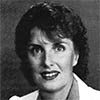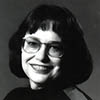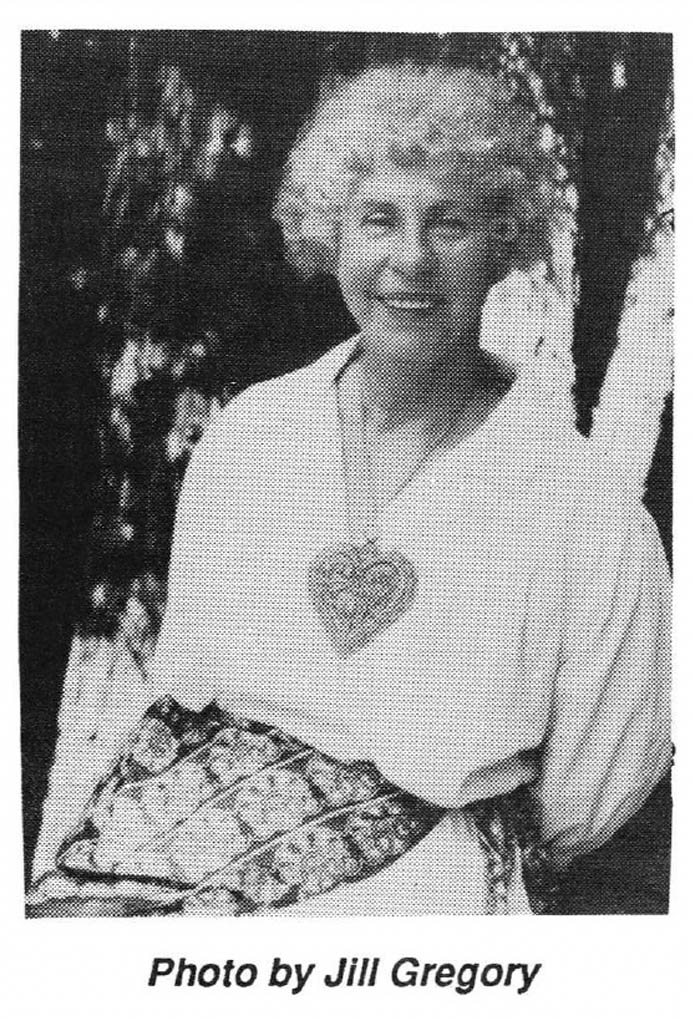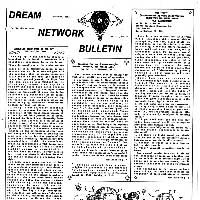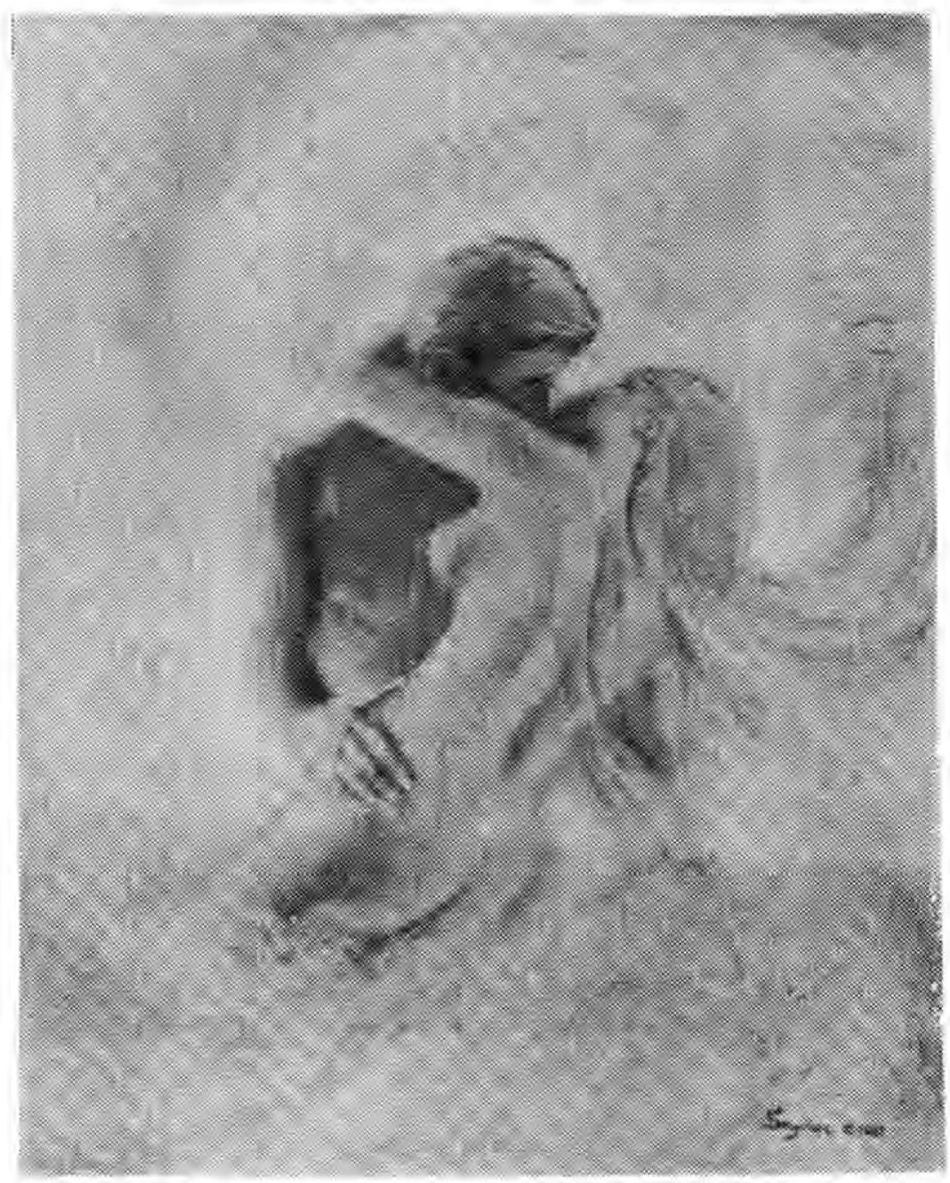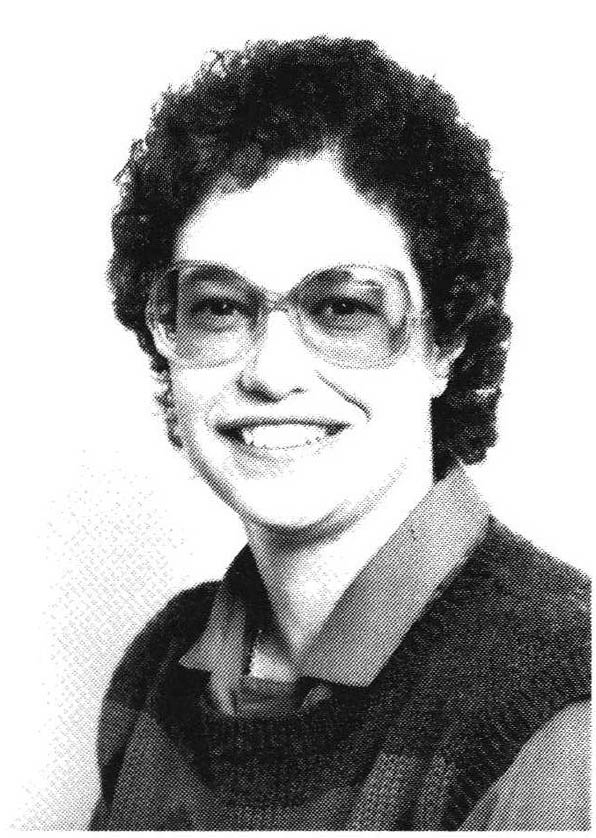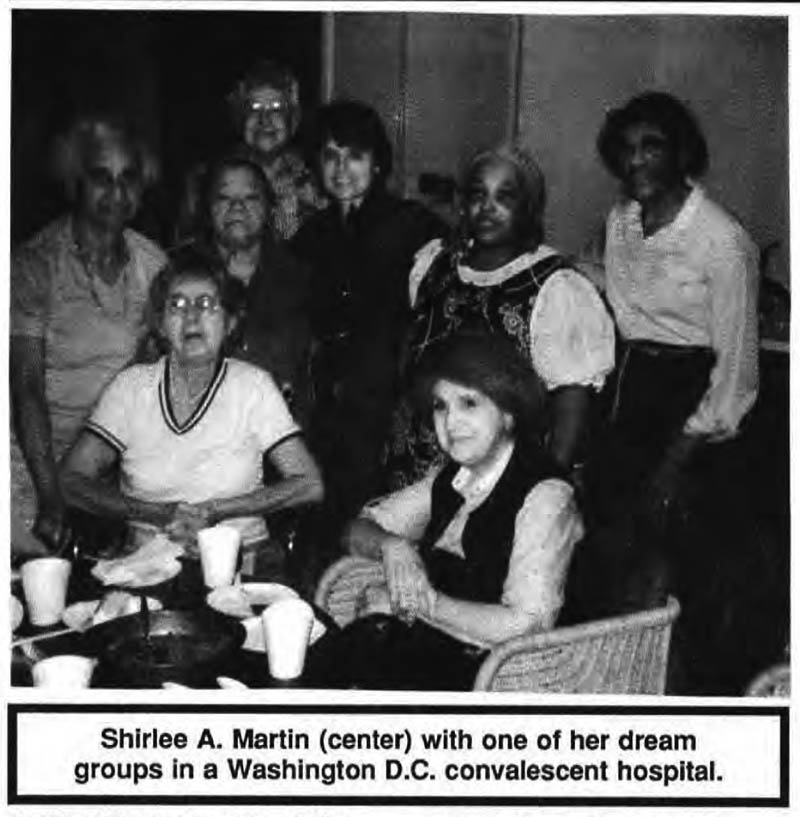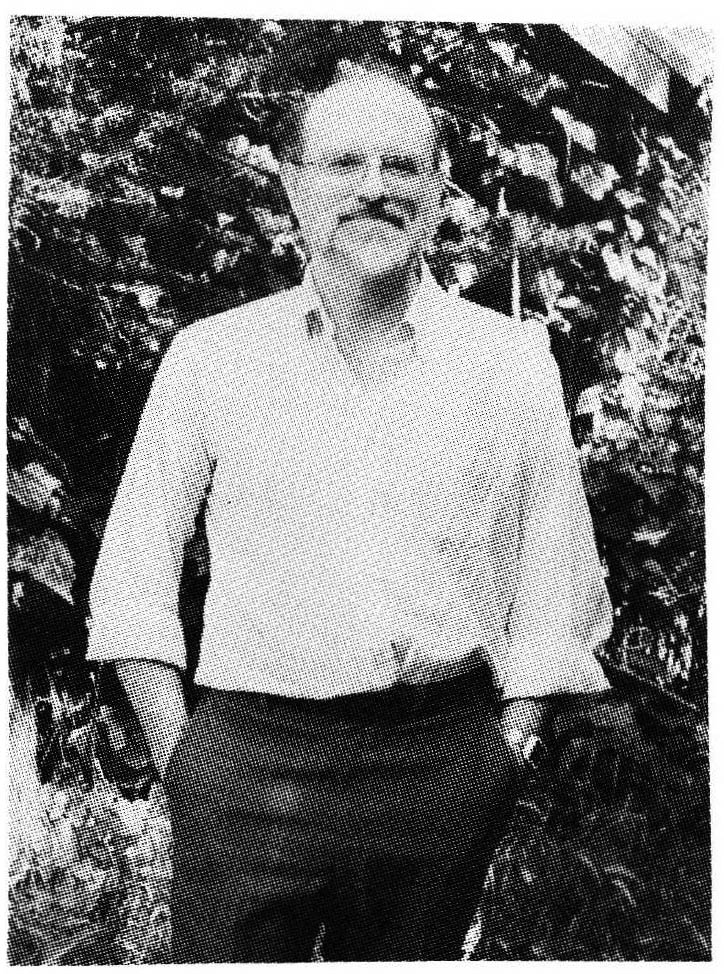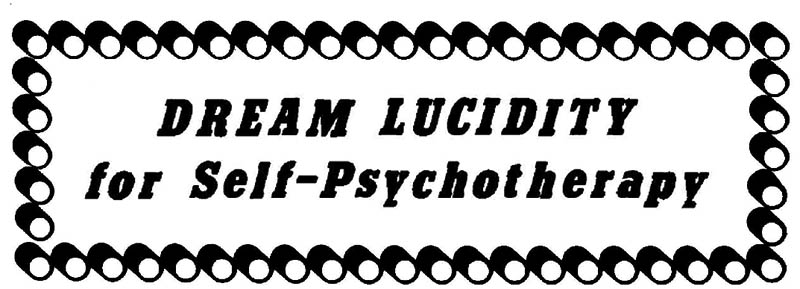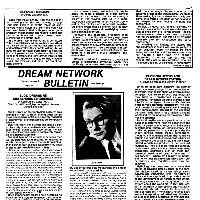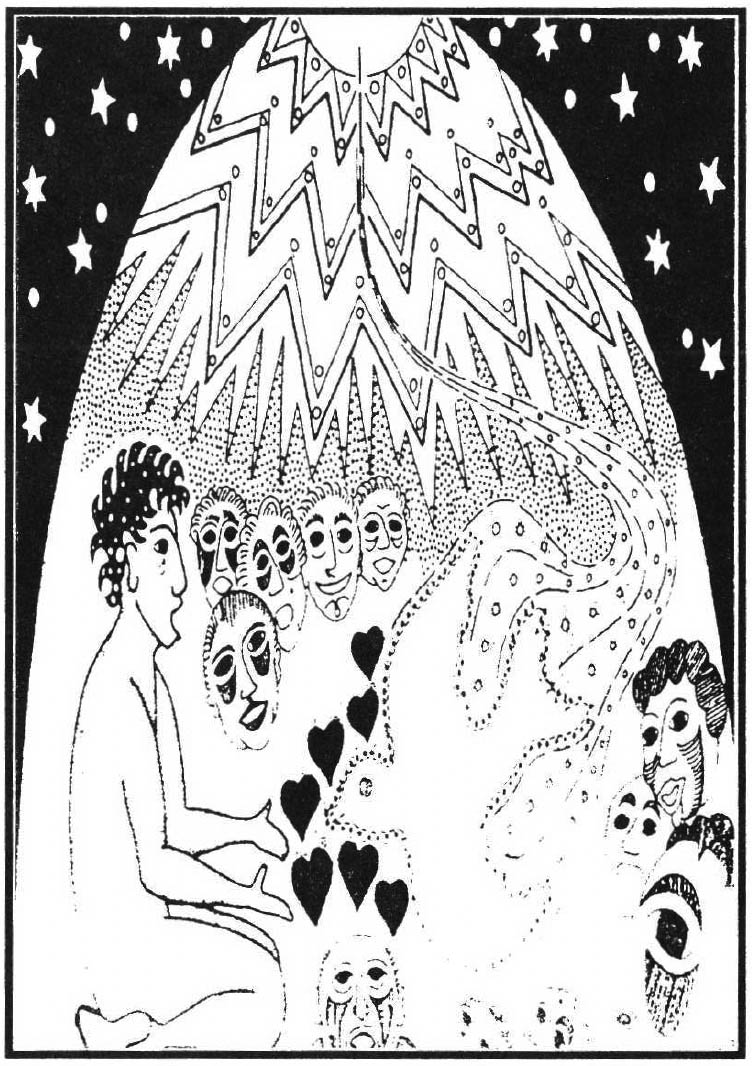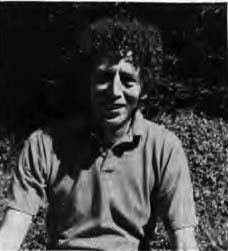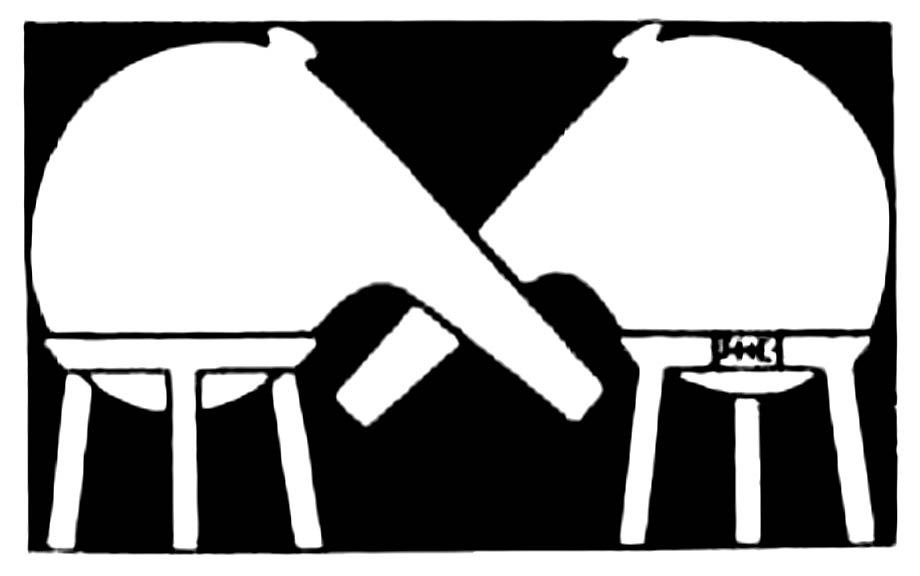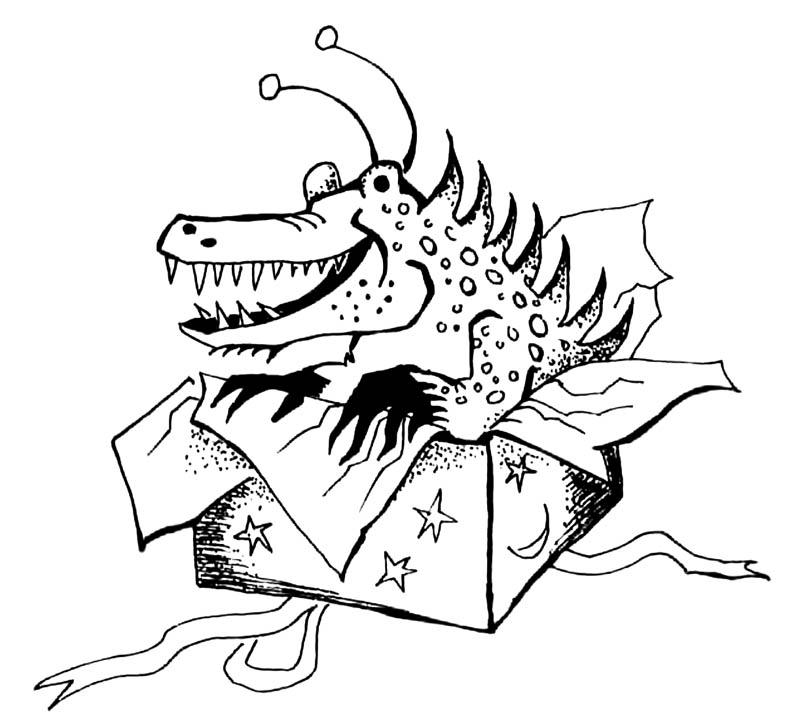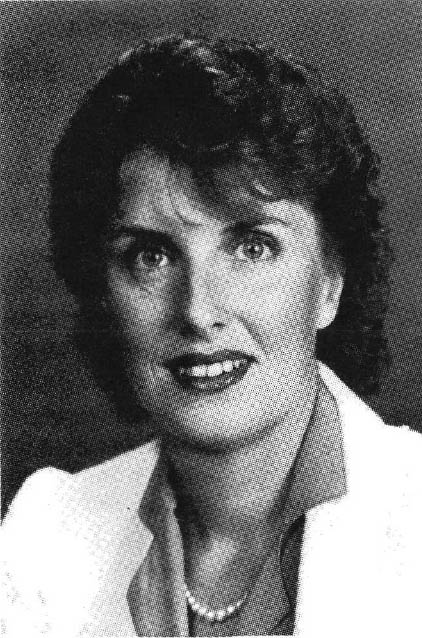
Linda: Jill, what excites you the most about dreams?
Jill: What interests me is their potential for transforming how we experience life; what we believe and think, how we feel and what we do with our lives. Dreaming gives us an alternate world to explore which functions according to related and yet different laws.
Linda: When did you first become involved in dreams?
Jill: My involvement with dreams began with a nightmare I had when I was four years old. In waking life, while he was driving, my father always used to run a car wheel off the shoulder of the road and it would terrify me. I thought we would go off into the marsh. In the dream I'm in the car with my parents. My father's driving, my mother's in the front seat and I'm in the back seat. In the dream that's what happens. We go off into the marsh and the car starts sinking. I wake up as the mud is going into my nose, ears and eyes. After my parents and I had responded to the dream the best that we knew how, I was still gripped with terror when I reentered my bedroom to return to sleep. I knew that we had not resolved the dream. I vowed that I would find out the connection between waking and dream reality.
This launched countless experiments testing theories that I had encountered. Many years of frustration and ignorant effort finally gave way to a breakthrough which occurred during a dream joumaling and analysis assignment for class while I was studying philosophy and creative writing. I connected a few dreams to issues in my waking life and began to get some progress in my dreamwork. From that point on I studied everything I could get my hands on and tried to apply what I learned to my dreamlife. That took me through Gestalt, defining symbols, finding puns and making associations to symbols, noticing compensation, archetypes and mandala imagery. I attended seminars and did dream reenactment, took workshops and expressed my dreams artistically.
It was in Ken Keizer's Gestalt group, when I was 27 years old, that I finally worked on my four year old dream. I discovered that the child felt helpless, was afraid of dying and afraid of going to hell. Being "saved" didn't help because I still lost out on life. My four year old self didn't trust her parents or God. When I finally allowed myself to die, I found that it was okay and the energy from that dream was released.
Linda: At what point did you become interested in lucid dreaming?
Jill: About 10 years ago. I had been working with Senoi methods of within-the-dream dreamwork without actual lucidity. I had also been refining my recall, not only to increase the number of dreams I could remember a night, but also to improve my ability to observe the dream scene, to bring back exact shades of colors, numbers of individuals, and estimates of distance and size. With more dreams and details from each dream I was spending two to three hours just recording. I was ready for a new goal for my dream life.
I had no idea lucid dreaming was possible until I read Ann Faraday's book, Dream Power. I got very excited, expecting it would start happening right away, but it didn't. It took three months until I had my first lucid dream. That dream forecast how rich, wonderful and nurturing the discovery of lucid dreaming was going to prove in my dream life and in my waking life.
Linda: It impresses me that you could go out and find an academic curriculum that would allow you to write a thesis with such an extensive bibliography on lucid dreaming for your B.A.
Jill: It was tough. I had to pull a few strings to obtain a thesis advisor who would let me do it the way I wanted. Since there were no lucid dreamers on the staff of the psychology department at Dominican College at the time, I was very fortunate that Bob Shukraft, head of the department, agreed to advise me and trusted my judgment. I spent two years of energy and attention putting together the thesis, entitled, "Becoming a Lucid Dreamer."
Linda: Was it then that you started to become more aware of the larger dream community?
Jill: Somehow my confidence, probably through dreaming and a lot of other things, was raised enough that I went to the 1985 ASD conference as a panel presenter at the lucid dreaming symposium. Fred Olsen and I met at the conference and through him I apprenticed in reentry and reimaging and attended the first meeting of the San Francisco Bay Area Professional Dreamworkers' Group.
That group gave me the idea that a career in dreams was possible and that, with the support of the network, I could do it. So I opened the Novato Center for Dreams (NCD) in January of this past year and launched an official professional dreamwork career including interviewing for Dream Network Bulletin.
Linda: What services does your Center offer?
Jill: The Center serves as a resource for a wide range of people, from those who have just begun to ask questions about dreams to those training for a dreamwork career or preparing to launch a dream center. I offer classes, workshops and lectures on how to develop dreamskills. We cover areas such as recall, types of dreams, journaling,dream-sharing, interpretive and non-interpretive methods of dreamwork/dreamplay, incubation and lucidity, healing dreams and flying dreams. I lead dream sharing groups. As an outreach I offer private tutoring by phone as well as in person. The Center's browsing library has over 110 books on dreams and information on dream events and resources. I display and sell dream based art and distribute my packets of "Tips for Dreamers."
Linda: What are your goals for the Center?
Jill: My overall goals involve promoting awareness and appreciation of dreams, dispelling erroneous myths and educating dreamers. The hard thing, I'm finding, is the marketing. Basically I think it's a lack of startup capital combined with a lack of practice doing it. But I think when this becomes more mainstream it won't be as much of a problem, because I think what we're doing is something that has a lot of interest and support. It's just pitifully underpublicized and that's tragic. I want to change that.
Linda: How would you characterize your style of dreamwork?
Jill: Well, the worn out word "eclectic" comes to mind. I like the experiences of group style dreamwork, such as acting out the whole dream and getting group feedback. But I care most about developing individualized dreamwork methods and teaching those to people because when a person wakes up, generally there is no group available. I'm very interested in developing dreamwork methods, pulling potent elements from different methods and bringing them together in a quick and flexible layout. The main thing in terms of feeling good about yourself as a dreamer is having a bulging repertoire of dreamwork methods that you can tap into as you see fit.
I see myself as a coach for dreamers. I ask, what is happening in your dream life right now? What has happened before? What would you like to have happen in the future? Then I present a variety of dreamwork methods-to me that's very important. I can suggest 50 techniques and 50 great goals, but often, by doing that, they'll come up with goal 51 and technique 51 that are really tailored for them. So I encourage dreamers to come up with their version of what they really want.
Linda: What are your views about the dreamwork field in general?
Jill: I see it as a vulnerable new movement which will strengthen because it bears valuable gifts and because everyone has a dreamlife of one sort or another. I think it's very important right now in the dream movement for researchers and avid dreamers and dream workers to be open-minded about dreams. It's a typical human fallacy to try to reduce things to fit into various frameworks. We need to really be open because we don't know. We are a very young field despite the fact that we're a very old field, because we haven't examined millions of dream journals from age two or three on, of various cross sections from different cultures and historical periods. We don't have that data base. Therefore we really don't know. So go with what feels right for you as the dreamer and don't Jet whatever is currently being discussed - this new theory; that new theory - try to set it. Stay with your own dreams and what feels right for you.
Linda: Any last advice for dreamers or dreamworkers?
Jill: If there's anything that I have to offer it's that dream skills can be learned just like you take lessons to learn how to swim or play a violin. I believe that we all have incredible and quite highly developed dream lives in toddlerhood and before we're even born. It gets knocked out of us by the socialization process.
By doing dreamwork, we're not bringing in something artificial to mess up our lives. The mess was getting cut off from our dreams in the first place. We're just going back to something that was natural. Dreams are a natural healing function that is one of the gifts of being human. We're lucky we've got them. I wouldn't want to live without my dreams.

